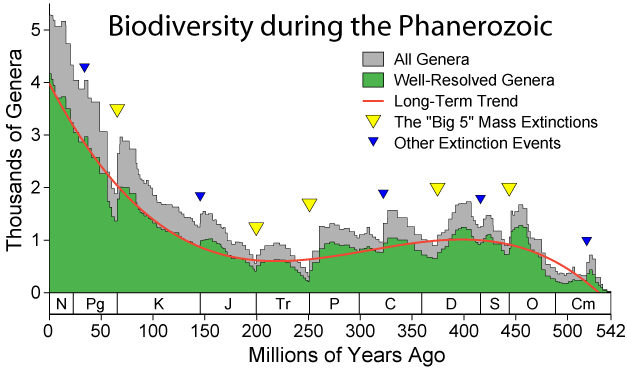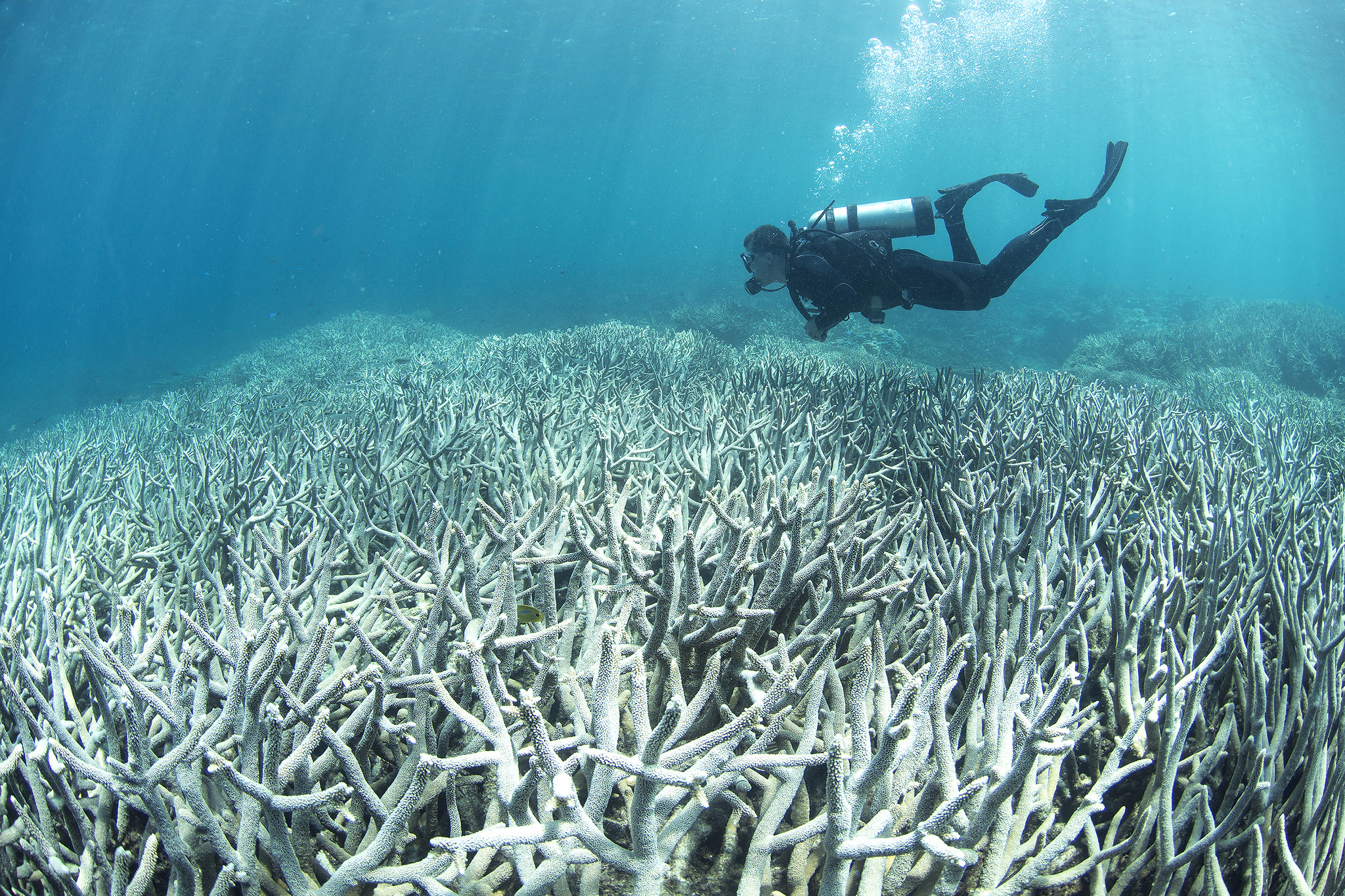Listen to Episode 55 on PodBean, Spotify, YouTube, or anywhere they have podcasts!
Usually, when we talk about mass extinction, we’re referring to events long past. But scary levels of extinction are a fact of our current world, as well. In this episode, we discuss just how bad our current ecological crisis is, what’s causing it, what we can do about it, and whether or not the current state of affairs truly deserves to be called The Sixth Extinction.
In the news
This brand new island is already home to a starter ecosystem.
One of the earliest known turtles had the earliest known bone cancer.
Megalodon may have gone extinct earlier than we thought, and for different reasons.
A fresh look at the first feather of Archaeopteryx … and it might not be Archaeopteryx!
Extinction
You may have heard of The Big Five. These are the five times in the past ~500 million years that life on Earth has been hit so hard that over 70% of life went extinct. We’ve talked about three of these on the podcast before: the Permian, Triassic, and Cretaceous extinctions.

Extinction can mean the total disappearance of a species, subspecies, or population, and it’s a normal, occasional occurrence. Looking at the fossil record, scientists have estimated a normal extinction rate (or background extinction rate) of 0.1 – 1 extinctions per million species per year. That is, for every million species on Earth, we’d expect one extinction every year to ten years.
Extinction in our Time
It’s called the Holocene Extinction, or maybe the Anthropocene Extinction. Sometimes just “the biodiversity crisis.” Whatever you call it, it’s the worldwide decline of species and populations as a result of human activity, and it’s happening right now.

The IUCN has identified more than 900 species of plants and animals that have gone extinct in the last 500 years, and more are identified every year. But identifying each individual species extinction is difficult, so numerous studies have tried to estimate how many species we’re losing without noticing them.
Research repeatedly suggests that the planet is losing thousands of species per year, with an extinction rate 100-1,000 times the background rate. The numbers are truly staggering.
Many other species are on the way to extinction. Research has found that vertebrate populations have declined over recent decades an average of 60%.
The causes are many and varied, and all human-related, including overhunting, overfishing, deforestation, pollution, invasive species, climate change, and more.

Some have suggested that this is the “Sixth Extinction,” the newest mass extinction to follow the Big Five, but others argue we aren’t quite at that level yet. Our impact is so dramatic that some scientists have proposed starting a new entry on the Geologic Time Scale, marked at the beginning of widespread human influence: the Anthropocene.
The Future
It’s pretty bad. That shouldn’t be understated. What we’re doing to the world around us is drastically shaping ecosystems and decreasing biodiversity, which is a bad deal for us. But hope is not lost. Lots of great conservation efforts are underway, and the public and political realms are more aware of these problems than ever before.
Sir David Attenborough says there’s cause for optimism. And who are we to argue?
So much more info
The IUCN Red List, for the status of species around the world.
Extinction Countdown, for news and research on endangered species.
Living Alongside Wildlife blogs about each year’s major extinctions.
Population declines:
Vertebrate populations have declined 60% on average; what does that mean?
Ceballos et al 2017
Research on extinction rates:
Barnosky et al 2011
Pimm et al 2014
Ceballos et al 2015
Climate Change:
Lots of great info at Time Scavengers
Climate Change at NASA
The Global Scourge on Coral Reefs
Those terrible fungi we mentioned:
White Nose Syndrome (bats)
Snake Fungal Disease
Chytriomycosis (amphibians)
—
If you enjoyed this topic and want more like it, check out these related episodes:
- Episode 18 – Human Evolution
- Episode 25 – The Pleistocene Megafaunal Extinction
- Episode 113 – Paleoclimate
- Episode 35 – De-extinction
We also invite you to follow us on Twitter, Facebook, or Instagram, buy merch at our Zazzle store, join our Discord server, or consider supporting us with a one-time PayPal donation or on Patreon to get bonus recordings and other goodies!
Please feel free to contact us with comments, questions, or topic suggestions, and to rate and review us on iTunes!
Hi David and Will,
I have listened to this podcast like 3 times, lol. It has been invaluable in consolidating everything I have read recently for an essay on the sixth mass extinction. The question is ‘Are we in the middle of a sixth mass extinction?’. It is great question that can be argued either way. I chose the same side as you guys. This is for a third year assignment and I have referred to something you talked about (compound impacts of multiple environmental changes leading to weakened ecosystem resilience and subsequent extinctions). I hope you don’t mind. Below is the reference I have created for my assignment. Could you let me know if the details aren’t correct?
Thanks so much!
And Happy New Year,
Tonia
BTW I am an Environmental Science undergraduate studying with the Open University online in the UK.
Moscato, D., Harris, W. (2017) ‘Episode 55 – The “Sixth Extinction” (Modern Biodiversity Crisis)’, Common Descent. Available at: https://commondescentpodcast.wordpress.com/2019/02/24/episode-55-the-sixth-extinction-modern-biodiversity-crisis/ (Accessed 23 December 2021).
LikeLiked by 1 person
That’s great!
LikeLike
Hi again,
I’ve just realised I had the year wrong! Should be 2019.
Happy new year,
Tonia
LikeLike